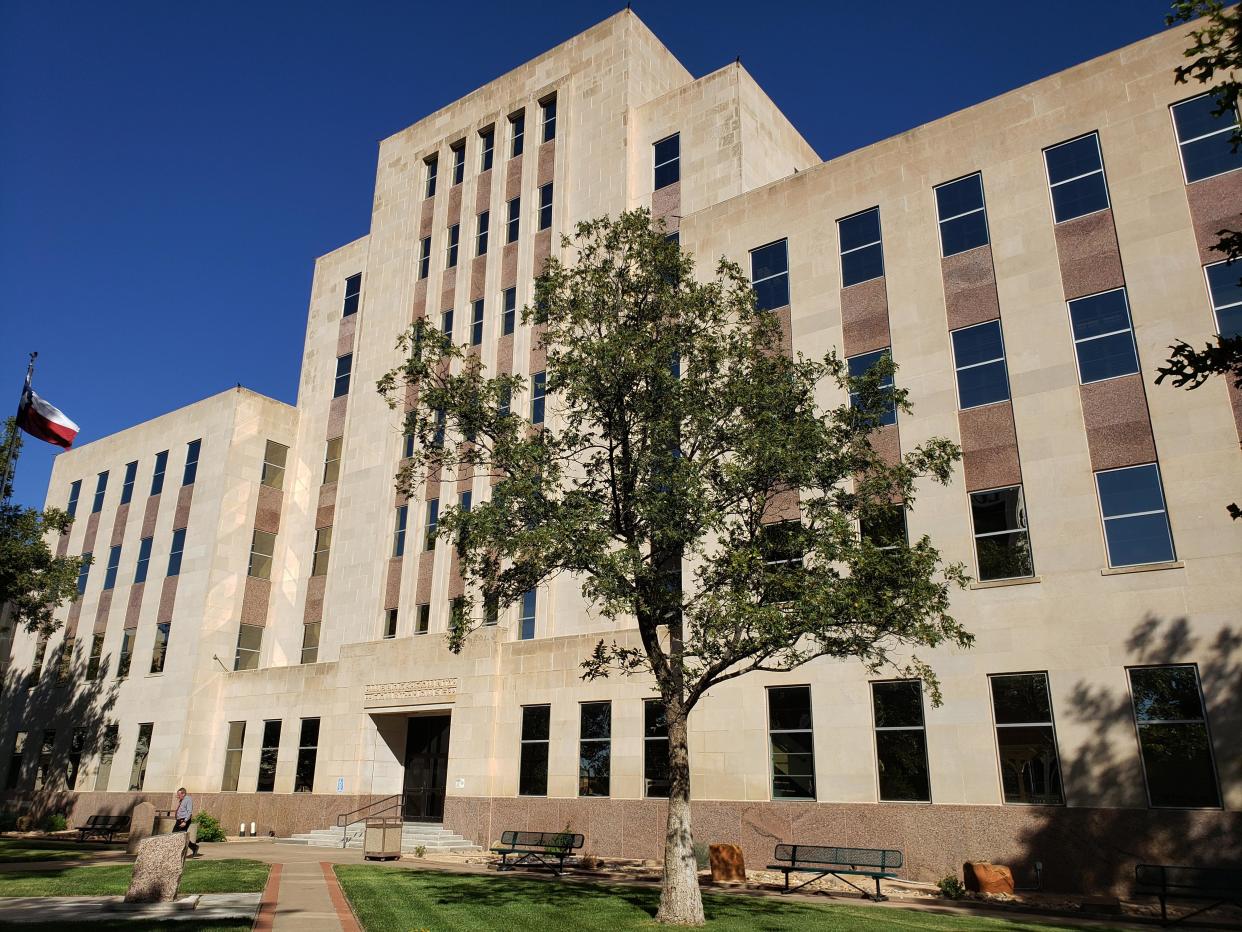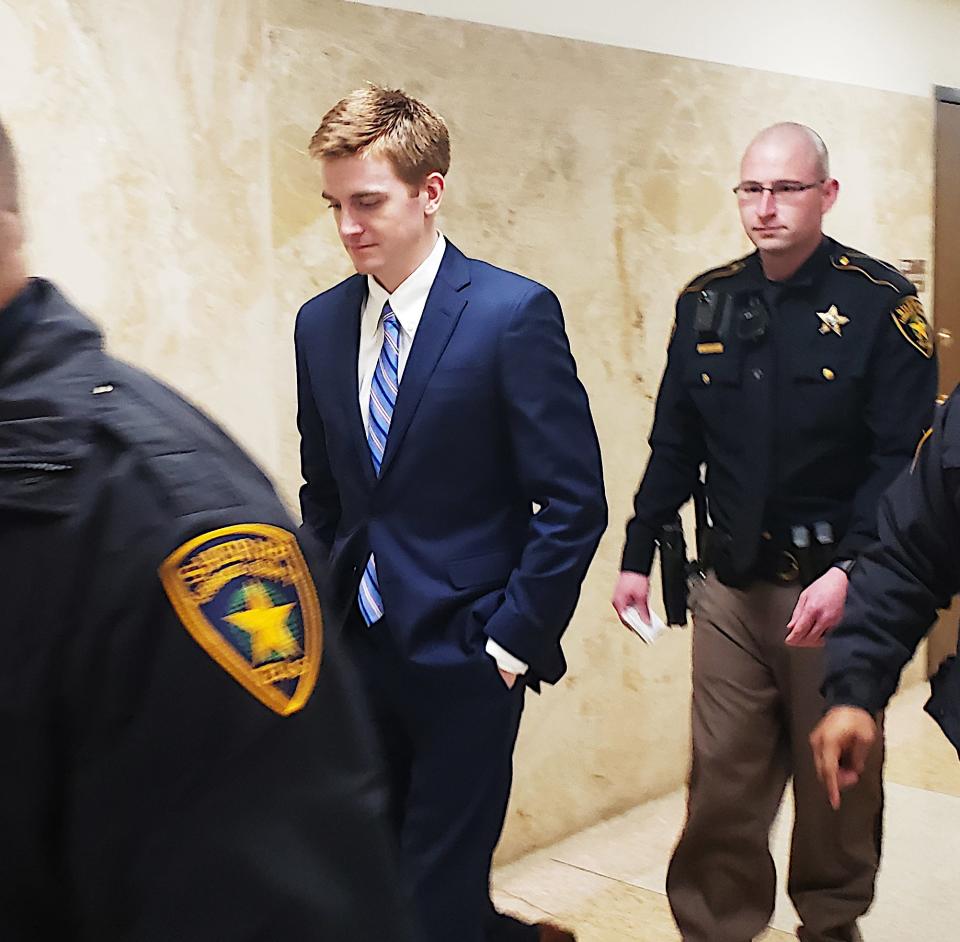Jurors picked in Hollis Daniels death penalty case

Opening statements and testimony are expected to be presented to a jury on Feb. 6 in the capital murder trial of Hollis Daniels III, the former Texas Tech student accused in the deadly shooting of campus police officer Floyd East Jr.
A 12-person jury with four alternates was selected Monday after a three-month-long jury selection process.
Daniels, 24, who has been held at the Lubbock County Detention Center since his Oct. 10, 2017 arrest faces life in prison without parole or the death penalty. He is charged in the Oct. 9, 2017 shooting death of East, a Texas Tech University police officer who arrested Daniels, then a 19-year-old freshman, for an unrelated drug offense.
Daniels is represented by Houston attorney Chip Lewis and Lubbock attorney Mark Snodgrass,
Judge John McClendon in the 137th District Court told jurors that he expects the trial to take at least two weeks.

Jury selection in the case started Nov. 17 with 250 potential jurors reporting to the Central Jury Pool room, filling out questionnaires and listening to a general presentation from prosecutors and defense attorneys.
After reviewing the potential jurors' answers, attorneys for the defense and prosecution found about 150 people were qualified to hear the trial in Lubbock County. That number was narrowed to 55 on Thursday after the individual voir dire phase that began Dec. 1.
Court officials were prepared to change the trial's venue to Midland County if both parties believed a fair and impartial jury could not be impaneled in Lubbock.
During the lengthy jury selection process, potential jurors were asked their opinions on the death penalty and were walked through the questions a jury would have to answer if they had to decide on Daniels' punishment.
A jury will have to decide whether there was mitigating evidence to warrant a sentence of life without parole, or that prosecutors have shown that a defendant presents a continuing danger to the community.
Jurors, some of whom knew or were related to law enforcement officers, were also asked their opinions on the death penalty.
Some jurors said they understood the need for the death penalty but were reluctant to participate in a jury deciding on the issue. Others said they would rather not serve as they were overwhelmed by the responsibility of serving as a juror in a death penalty capital murder case.
One juror, a father of two, told the court that he was worried about how the trial would affect his mental health if he was selected to hear the trial.
Of the initial 150 jurors who went through the individual interviews, attorneys spoke to a little more than 100 people. The court summoned another 75 potential jurors and about half of those people went through the individual voir dire process until a pool of 55 people were collected for the last stage of the process.
On Monday, attorneys spent about an hour going through the list of 55 names until the 16-member jury panel was selected. Each side was given 18 pre-emptory strikes for the first 12 jurors, meaning they could cut a potential juror for any reason. The court provided an additional two strikes for the alternate jurors.
Before dismissing the jury, McClendon instructed them not to tell anyone in which trial they were serving. He also told them not to talk to anyone about the case, or do any research about it ahead of the trial.
This article originally appeared on Lubbock Avalanche-Journal: Jurors seated in Hollis Daniels death penalty capital murder case

